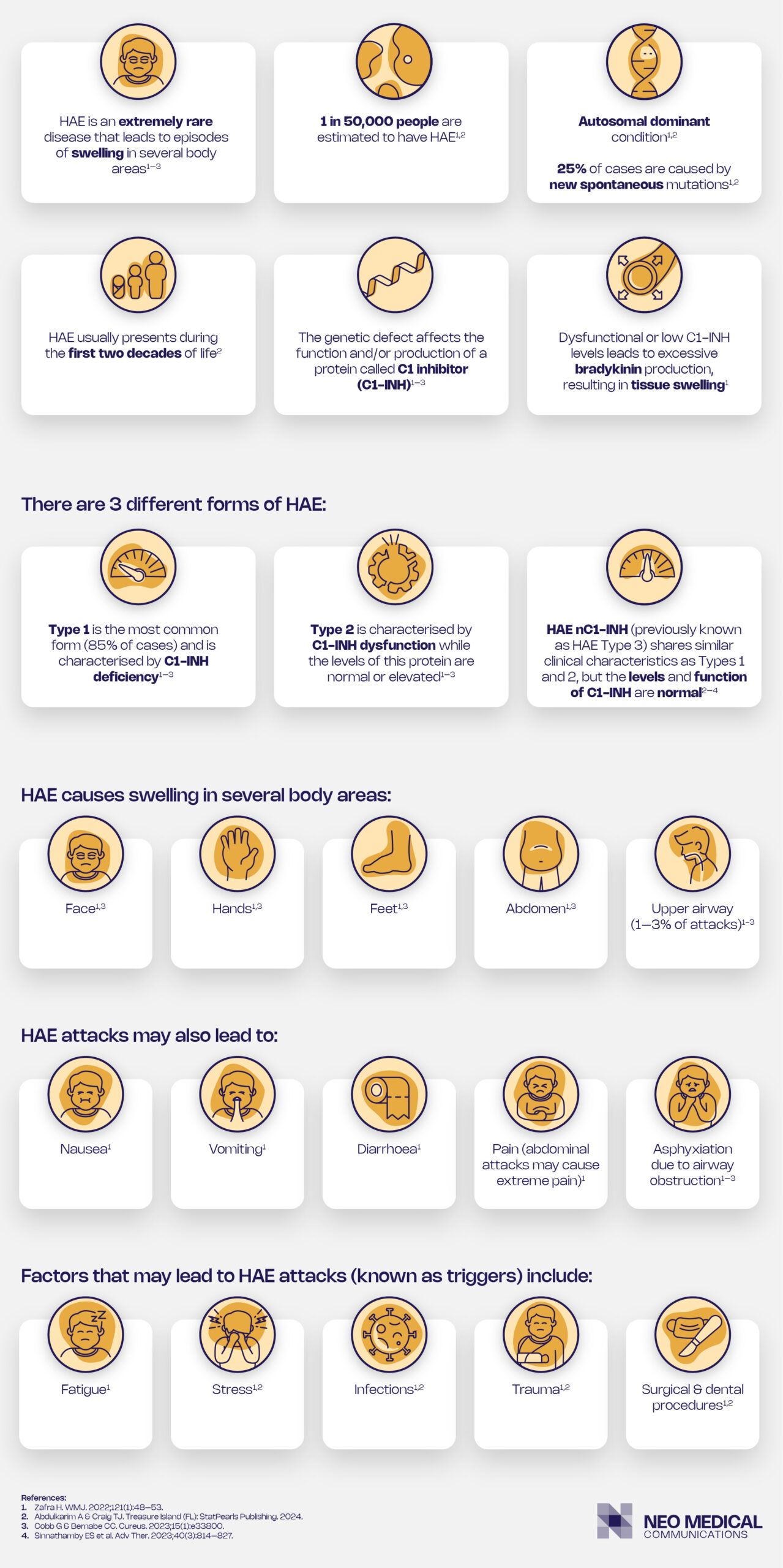Hereditary angioedema (HAE) is a rare and disabling condition characterised by excessive production of a molecule known as bradykinin, which leads to excessive permeability of blood vessels, ultimately causing severe tissue swelling.
The symptoms of HAE can vary in severity, location, and duration, but the organs involved include the skin, gastrointestinal tract, and upper airway. Attacks can be unpredictable, painful and cause temporary physical deformation due to tissue swelling, preventing patients from living with normality and impairing their quality of life.
Attacks affecting the airway are the most concerning manifestation of HAE as they can lead to asphyxiation and death. Fortunately, the approval of several targeted therapies over the last two decades has meant that patients affected by this debilitating condition can treat their attacks when they occur with on-demand therapy, as well as sharply reducing the frequency of attack occurrence with regular use of medication.

